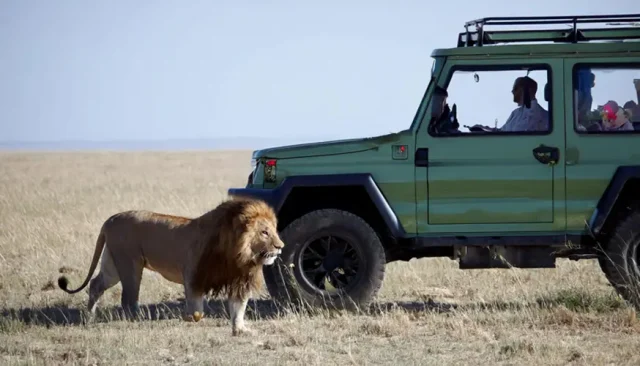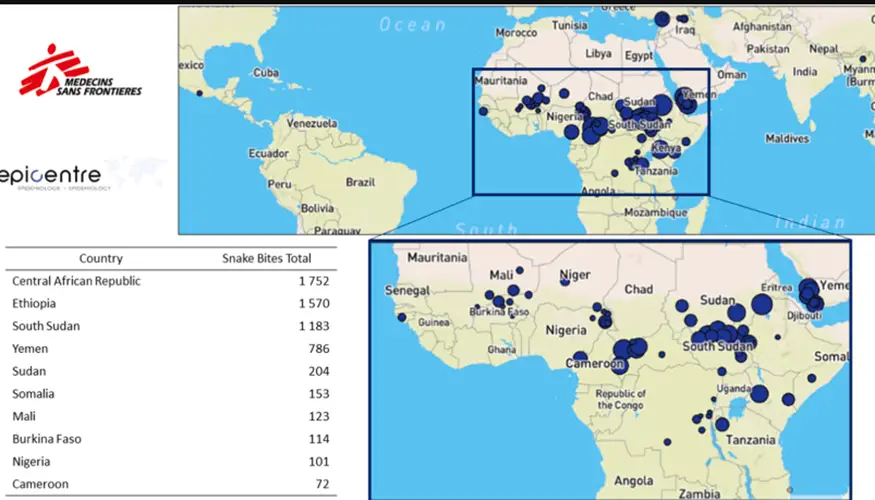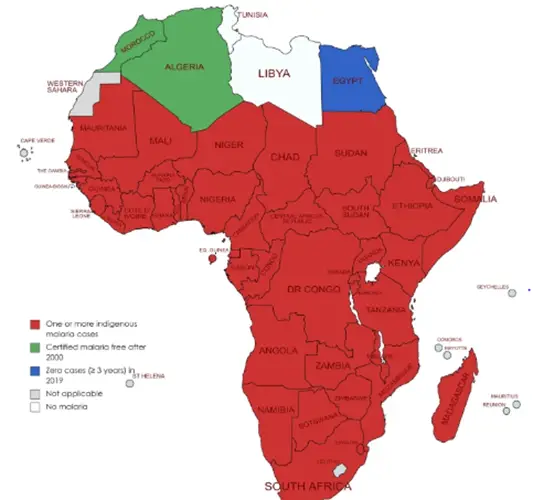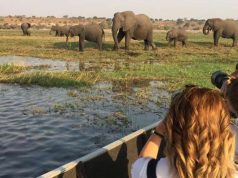
A safari is more than just a vacation — it’s a chance to witness the raw beauty of nature and encounter wildlife in their own backyard. Imagine the thrill of spotting a lion pride on the hunt or watching elephants bathe in a watering hole.
But to truly enjoy this adventure, being prepared is key. Packing the right gear and taking care of a few essentials beforehand can make all the difference between a good trip and an unforgettable one.
So, this guide will walk you through everything you need to pack and prepare for your wildlife journey.
Packing Essentials for Your Safari
When packing for a safari, think practicality, comfort, and respect for the environment. Here’s essentials you’ll need.
Clothing and Footwear
When we’re talking about safari clothing, think comfort, practicality, and blending in.
- Layering is Key: Temperatures can swing dramatically in the African bush, from chilly mornings to scorching afternoons. Pack lightweight, breathable clothes that you can layer. Think t-shirts, long-sleeved shirts, zip-off pants, and a fleece jacket or light sweater for cooler evenings, adds Joshua D’Souza, Co-Founder & CEO of CloudSafaris.
- Neutral Colors are Best: Stick to earthy tones like khaki, brown, and olive green. These colors help you blend into the environment and won’t attract insects as much as bright colors. Natural fabrics like cotton and linen are also ideal as they’re breathable and comfortable in hot weather.
- Sun Protection is Essential: The African sun is strong! Pack a wide-brimmed hat, sunglasses, and plenty of high-SPF sunscreen. You’ll be spending a lot of time outdoors, so protecting yourself from the sun is crucial.
- Footwear Matters: You’ll likely be doing some walking on uneven terrain, so comfortable, sturdy shoes are a must. Closed-toe shoes or hiking boots are ideal for protecting your feet from thorns and insects, says Sumeer Kaur, Founder of Lehenga Choli.
And did you know, over 315,000 snake bite incidents occur in Africa annually.

So proper footwear is a must! And also, travel with caution.
Gear and Equipment
Beyond clothing, there are a few essential pieces of gear that will enhance your safari experience.
- Binoculars: Binoculars are a must-have for any safari-goer. They allow you to observe wildlife from a safe distance and appreciate the finer details of animals you might not otherwise see, says Martin Seeley, Senior Sleep Expert of Mattress Company.
- Camera and Accessories: You’ll want to capture the incredible moments you experience on safari. Bring a camera with a good zoom lens to get close-up shots of wildlife. And don’t forget extra batteries, memory cards, and a protective case to keep your camera safe from dust and bumps.
- Daypack: A comfortable daypack is perfect for carrying essentials during game drives and excursions. Pack water, snacks, sunscreen, insect repellent, a first-aid kit, and anything else you might need throughout the day, adds Josh Pather, Founder of Photo Booth International.
- Power Bank and Adapters: Stay Charged Up: You’ll likely be using your phone or camera a lot, so a power bank is crucial for keeping your devices charged on the go. Also, make sure to pack the appropriate adapters for the country you’re visiting.
Health and Hygiene
Staying healthy is vital for enjoying your safari adventure to the fullest.
- Insect Repellent: Mosquitoes and other biting insects can be a nuisance and can carry diseases. Pack a good insect repellent containing DEET to protect yourself.
- Malaria Prophylaxis: Depending on the region you’re visiting, you may need to take anti-malarial medication. Consult your doctor well in advance of your trip to discuss the necessary precautions.
- First-Aid Kit: A basic first-aid kit is essential for treating minor injuries or ailments. Pack essentials like bandages, antiseptic wipes, pain relievers, antihistamines, and any personal medications you might need, shares adds Dan Close, Founder, and CEO at Local Buyers.
- Personal Medications: If you take any prescription medications, make sure to pack enough for the duration of your trip, plus a few extra days in case of unexpected delays. It’s also a good idea to carry a copy of your prescriptions.
And remember, Malaria is still a concern in many parts of Africa, with over 90% of cases occurring in the region.

So, this clearly shows that you need to pack all the essentials — if you want to survive.
Miscellaneous Essentials
These additional items may seem small, but they can make a big difference in your overall safari experience.
- Travel Documents: Make sure you’ve a valid passport, any necessary visas, travel insurance documents, and vaccination certificates. It’s a good idea to make copies of these important documents and keep them separate from the originals.
- Cash and Credit Cards: While credit cards are widely accepted in many safari lodges and camps, it’s always wise to carry some cash in the local currency for tips, small purchases, and places where cards might not be accepted, adds Khashayar Shahnazari, Chief Executive Officer at FinlyWealth.
- Guidebooks and Maps: A good guidebook and map can help you learn more about the wildlife and ecosystems you’ll encounter, as well as navigate unfamiliar areas.
- Snacks and Drinks: While most safari packages include meals and drinks, it’s a good idea to pack some extra snacks and drinks, especially for longer game drives or if you have specific dietary needs or preferences.
Preparations Before You Go
While packing the right gear is important, there are also several preparations you should make before going on your safari adventure to ensure a smooth and enjoyable experience.
Research and Planning
Before you go, do your research on your chosen safari destination. Learn about the types of wildlife you can expect to see, the best time of year to visit for optimal game viewing, and any specific requirements or regulations for the area. This will help you set realistic expectations and make informed decisions about your itinerary.
Booking Accommodations and Activities
Safari lodges and camps can fill up quickly, especially during peak season. Book your accommodations and activities well in advance to avoid disappointment. This also gives you the chance to compare options and find the best deals, suggests Anthony Acosta, Digital Marketing Expert at Big Horn Golfer.
Vaccinations and Health Precautions
Consult your doctor or a travel health clinic several months before your trip to ensure you’re up-to-date on all necessary vaccinations. Also, discuss any recommended medications or preventative measures for the region you’ll be visiting.
Travel Insurance
Unexpected events can happen, so it’s crucial to have comprehensive travel insurance that covers medical emergencies, trip cancellations, lost luggage, and other unforeseen circumstances. This will give you peace of mind knowing you’re protected in case something goes wrong.
Cultural Awareness and Respect
Take some time to learn about the local culture and customs of the country you’re visiting. This includes understanding appropriate dress codes, greetings, and social norms. Respecting the local people and their traditions will enhance your experience and foster positive interactions.
Wrapping Up
A safari is a journey unlike any other — a chance to connect with the wild and witness the wonders of the natural world. By packing smart, preparing well, and approaching your adventure with respect and curiosity, you’ll create memories that will last a lifetime.
So get ready for the trip of a lifetime, and let the magic of the safari unfold before your eyes!





